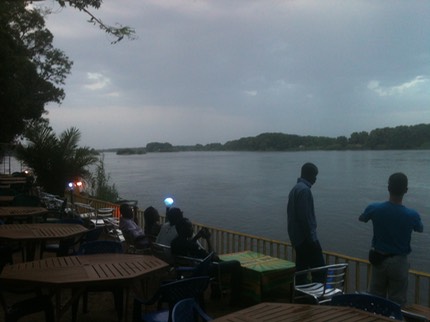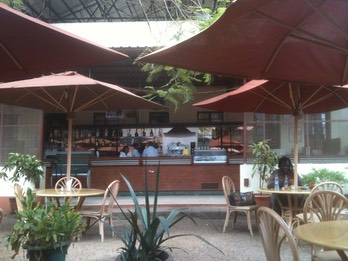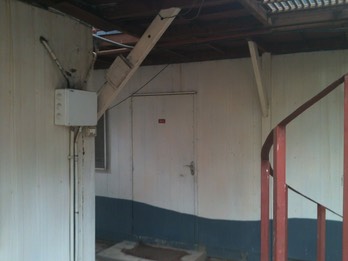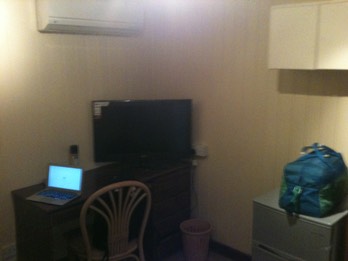The Nile is the last of many great rivers that once flew north through the region today known as the Sahara desert.
Egypt became a great civilisation for a reason. The Nile, flowing towards the Mediterraenean Sea, offered essentially free transportation through a vast territory. Follow the river's current to go north, use sails to use the wind from the Mediterraenean to go south. And the yearly floods allowed for the creation of an agricultural empire at a place where Afro-Asiatic (Berber) and African (Nubian) culture met.
The long-sought source of the Nile turns out to be two sources; that of the White Nile (in Lake Victoria) and that of the Blue Nile (in Ethiopia).
The capital of the Republic of South Sudan is located on the White Nile, far north of Lake Victoria but south of Khartoum where the Blue and White Nile combine to form the great river of Egypt. Juba was founded as a Greek trading post during Ottoman times. But Juba is also in the centre of the region whence the African half of Egypt's culture originated.

Seeing the Nile in Juba was a necessary exercise. It would have been bizarre to visit a city on the Nile without seeing the Nile.
But the story starts before I saw the Nile. The story starts at Juba International Airport, of which I could not take a picture. It's not a big airport.
From the airport we took a car to Paradise Hotel which, as I later found out, is a paradise for cockroaches and other insects. They also have frogs.
I took a few pictures from the car, which can be found in a separate Juba picture gallery page.
The hotel was not an excellent place. But its restaurant was OK.

We immediately met a few people that my companions already knew, including a former politician (who was known to everyone in the hotel) and a publisher of a local newspaper. We talked about the general situation in South Sudan and about its recent (the last few decades) past.
Let's just say life under the Arabs of North Sudan was not easy. I will write more about the past in level 4 later.
The rooms were containers connected to water and electricity lines. While the room looked OK, it later turned out to have some disadvantages over the restaurant outside.


At 2 AM I was woken up by a mosquito. That's when I noticed the coackroaches.
By 2:30 AM I had given up the bath room. I was too afraid to go in there. A giant coackroach was sitting on the shower nozzle. I didn't want to find out what it was afraid of and had made it hide there.
By 3 AM I was standing in the middle of the room, armed with an insect death spray (that didn't work) and an insect repellant spray (that didn't work). I didn't dare leave the middle of the room any more. The space between the walls and the furniture next to the walls turned out to be an insect empire.
When the cockroaches took over the bed I knew I had lost. And my chemical warfare had also destroyed the air in the room, at least for humans. I took a decision.
I surrendered the room to the insects and slept outside in the restaurant. I made sure to lock the door, this time to keep the insects in.
Ironically, the outdoor restaurant was insect-free (presumably all the insects were in my room). A few frogs jumped around on the ground and a few cats were playing in the vicinity. The armed guard walked through the area every hour or so.
I didn't sleep well.
On the next morning we returned to Juba airport for a flight to Aweil in the northwest.
